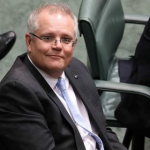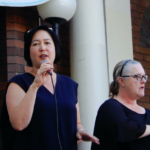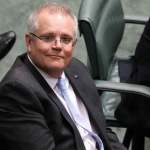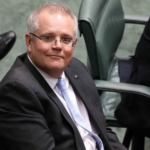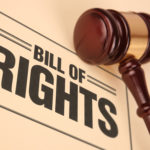Hate Speech, Gay Conversion and the NSW Faith Lobby: Minns’ Religious Freedoms Crusade
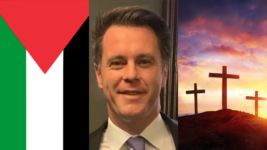
The tossing of international law out the window by Israel, as it attempts to wipe out the Palestinians of Gaza, in a war crimes bonanza so far six-weeks-long, has reverberated across a planet, which is mourning the loss of humanity and critiquing the corruption of western allied leadership.
The conflict is echoing locally in NSW, as massive outpourings of pro-Palestinian support has swelled despite the Albanese and Minns governments having shown unwavering support for Tel Aviv and its wholesale massacre backed up by statements of clear genocidal intent.
There have been increasing reports of Islamophobic and antisemitic incidents over here, however there’s also been an attempt to tar pro-Palestinian protest as conveying an anti-Jewish message, when if they have been opposed to any institutions it has been that of Israel and Zionism.
The NSW premier’s vocal support for Israel’s PM Netanyahu has meant that pro-Palestinian marches have also been directed towards his leadership, and instead of calling for a ceasefire in Gaza, Chris Minns has dusted off a hardly used 2018 racial vilification law and blamed it for the chaos.
So rather than look beyond Tel Aviv’s holy war rhetoric and grapple with the political nature of the pro-Palestine movement, the premier is to fortify the ability to prosecute religious vilification, as it’s always been Minns’ plan to strengthen the religious voice in the polity at the expense of the secular.
Religious voice to parliament
In the runup to the 2023 NSW state election both premier Dominic Perrottet and opposition leader Chris Minns were spruiking the post-vote establishment of a multifaith religious body that would have a direct voice to the government and provide policy advise from a religious perspective.
Both Minns and Perrottet are practising Catholics. The current premier voted against voluntary assisted dying laws that passed through parliament this year. While the prioritisation of religious freedoms has been a key issue in politics, due to the recent fixation of former PM Scott Morrison.
Labor’s been losing the religious vote over the last two federal elections, especially in Sydney’s west. The Coalition’s 2019 win was partially put down to its religious focus, while last year’s national vote saw Independent Dai Le take out Fowler, in the wake of the heightened western Sydney lockdown.
During a 24 October budget estimates hearing, Multicultural NSW CEO Joseph La Posta outlined that 12 of the 16 seats on the NSW Faith Affairs Council have been filled, with 11 of those being assigned to the council being men.
The Rationalist Society of Australia has been raising issue with this sway towards the prioritising of the religious voice, as the council will provide advice directly to multicultural minister Steve Kamper, and despite a third of NSW residents having no religion and being unrepresented on this body.
Conversion via prayers
The Faith Affairs Council may sound like a small innocuous body that won’t hold much influence over parliament. However, religious politicians – and locally that predominately means Christian members – have been concerned with the resurrection of greater religious freedoms of late.
And the council is not the only religious body that will be influencing politics, as last month the premier and other cabinet members attended the launch of Faith NSW, which is a new multifaith lobby group that will make representations to the Faith Affairs Council and government.
Faith NSW evolved out of the Better Balanced Futures, which is a group that is pushing for easier access to Special Religious Education in public schools, at a time when SRE is increasingly opposed in the community. Faith NSW chief executive Murray Norman is the head of both organisations.
As the Rationalist Society’s Si Gladman reports, Norman told Christian radio last month that Faith NSW is planning on lobbying Minns to prevent him delivering a ban on gay conversion therapy, as the different members of the lobby agree those of faith should be free to practise their religion.
“There is difference within the faith communities,” Norman assured, and he went on to allude to “the Hindu community” as within that faith it “is permissible to be with… homosexual relationships.”
“But the family unit is so important that they agreed that every community should be able to make their own decisions and that it’s really important that that family unit is respected, and that the new policies need to meet up with that,” he continued.
The Faith NSW CEO appears to be arguing for the ability to continue to practise gay conversion therapy, however, he refers to it as “prays and teaching”, which he elaborates isn’t only practised within the Christian community, as it takes place right across all faiths.
Independent MP Alex Greenwich tabled a bill in August that includes a gay conversion therapy ban, but the Minns government says it is drafting its own laws, while the Australian Christian Lobby has called for a ban only on coercive practises but not those that involve praying for conversion.
Streamlining hate speech prosecutions
With the fallout from the Gaza genocide mounting on the streets, Minns announced last week that his government is contemplating overhauling a 2018-passed hate speech offence, because no one has ever been convicted under the law and, therefore, this means it is not doing its job.
This argument that completely rejects the premise that a criminal law could be doing its job by deterring people from partaking in activities that are outlawed, while any type of acts that are continuing in public but aren’t criminalised by the law simply aren’t behaviours that are illegal.
Section 93Z of the Crimes Act 1900 (NSW) contains the offence of publicly threatening or inciting violence on grounds of race, religion, sex, gender or intersex or HIV/AIDS status. This crime can see a person liable to 3 years imprisonment or fined $11,000, while corporations can cop a $55,000 fine.
As NSW attorney general Michael Daley explained, a handful of charges have been laid against this offence and all of them were withdrawn except for two which were later discontinued because the police officers had failed to obtain permission from the NSW Director of Public Prosecutions (DPP).
Daley has come to the conclusion that the requirement for the DPP to sign off on a prosecution is the issue. He told parliament that due to “recent dynamic events”, it has become apparent the DPP clause is “not fit for modern society” and, therefore, he’s tabled a new bill removing that stipulation.
Introduced on 21 November, the Crimes Amendment (Prosecution of Certain Offences) Bill 2023 removes the requirement that the NSW DPP sign off on any prosecution under section 93Z of the Crimes Act.
However, the NSW Council for Civil Liberties has criticised the move stating that they’re aware that this kneejerk legislating in the midst of a crisis is “based on lobbying undertaken by faith-based groups, in the absence of any legal or policy evidence”.
“Speech that is controversial that falls short of the current legal threshold should not be criminalised,” NSWCCL president Lydia Shelly made certain. “We already have criminal provisions outlawing the use of offensive language and prohibition against incitement to violence in NSW.”
The lawyer added that controversial speech that isn’t now illegal shouldn’t be criminalised as it “should rightly be challenged, debated and even ridiculed”, and this discussion should be able to occur in an “open and free press”.
Shelly also raised the point that Islamophobic and antisemitic rhetoric that occurs in Australian society is usually on the part of right-wing actors. Indeed, this sort of white supremacist nationalism is likely behind at least some of the incidents that have been occurring of late.
“If the legal threshold is lowered, it will not make faith communities any safer from a perceived risk of violence or the risk of actual violence occurring,” the civil liberties expert added.
“Instead, the lowering the threshold will potentially have a chilling effect on public discourse and perversely, make it difficult for police and intelligence organisations to monitor those who may plan to resort to violence,” she warned.


